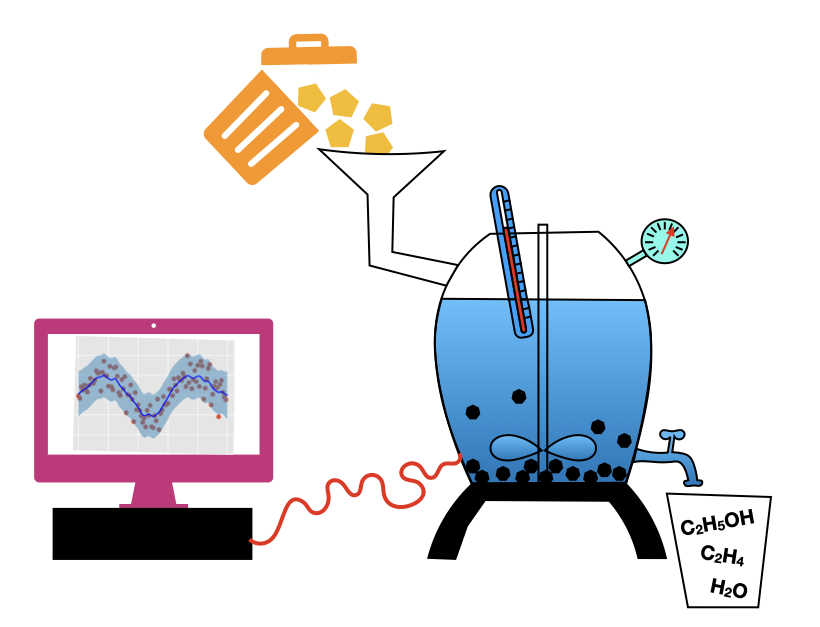Master research project
Catalytic conversion of plastic waste
- Superviser: Dr. Bernd Ensing
- Institute: HIMS
- Send email
- Website

Plastics are ubiquitous in every part of our society. However, only 9% of used plastics are recycled, which creates an unsustainable rest-stream of plastic waste, which is currently incinerated or landfilled. The Catalysis Engineering group at HIMS is developing a chemical hydrothermal liquefaction process that can transform complex waste streams into useful resources, such as chemicals, materials, nutrients and energy. However, a difficulty is the lack of predictability of the reaction output in terms of yield, composition and by-product formation because of the complex reaction network and the many input parameters involved, including waste composition, reactor temperature, pressure, and catalyst materials present.

In this master project, you will develop a novel AI-based strategy aimed at modeling and guiding the hydrothermal liquefaction process. First, using a diverse set of initial experimental data, you will construct a machine learning-based simulator. Then, introducing an AI-guiding framework based on active learning and Bayesian optimization cycles, you will use and improve the simulator to guide future experiments.
Supervision:
- Christian Naesseth (IvI)
- Shiju. N. Raveendran (HIMS)
- Bernd Ensing (HIMS)
